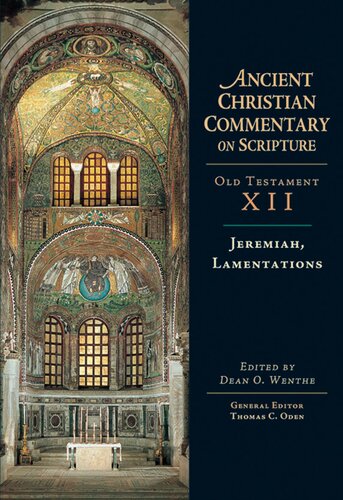

Most ebook files are in PDF format, so you can easily read them using various software such as Foxit Reader or directly on the Google Chrome browser.
Some ebook files are released by publishers in other formats such as .awz, .mobi, .epub, .fb2, etc. You may need to install specific software to read these formats on mobile/PC, such as Calibre.
Please read the tutorial at this link: https://ebookbell.com/faq
We offer FREE conversion to the popular formats you request; however, this may take some time. Therefore, right after payment, please email us, and we will try to provide the service as quickly as possible.
For some exceptional file formats or broken links (if any), please refrain from opening any disputes. Instead, email us first, and we will try to assist within a maximum of 6 hours.
EbookBell Team

4.1
80 reviewsJeremiah, the weeping prophet, prophesied for four decades under the last five kings of Judah―from 627 to 587 B.C. His mission: a call to repentance. Among the apostolic fathers, Jeremiah was rarely cited, but several later authors give prominent attention to him, including Origen, Theodoret of Cyr, and Jerome, who wrote individual commentaries on Jeremiah, and Cyril of Alexandria and Ephrem the Syrian, who compiled catenae.
Justin and Irenaeus made use of Jeremiah to define Christians over against Jews. Athanasius made use of him in trinitarian debates. Cyril of Jerusalem, Irenaeus, Basil the Great, and Clement of Alexandria all drew on Jeremiah for ethical exhortation.
Lamentations, as might be expected, quickly became associated with losses and death, notably in Gregory of Nyssa's Funeral Oration on Meletius. By extension the fathers saw Lamentations as a description of the challenges that face Christians in a fallen world.
In this Ancient Christian Commentary on Scripture volume, readers will find some ancient authors translated into English here for the first time. Throughout they will gain insight and encouragement in the life of faith as seen through ancient pastoral eyes.